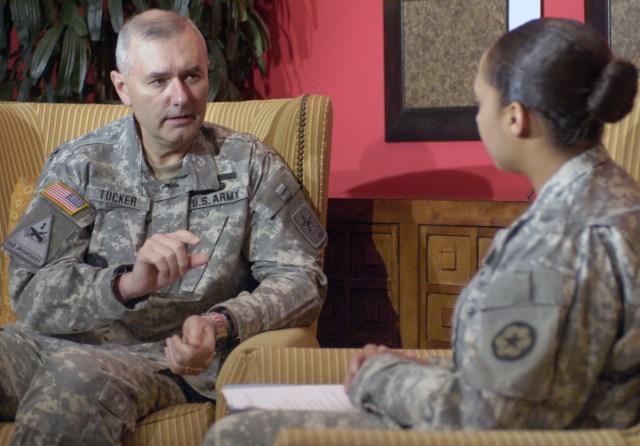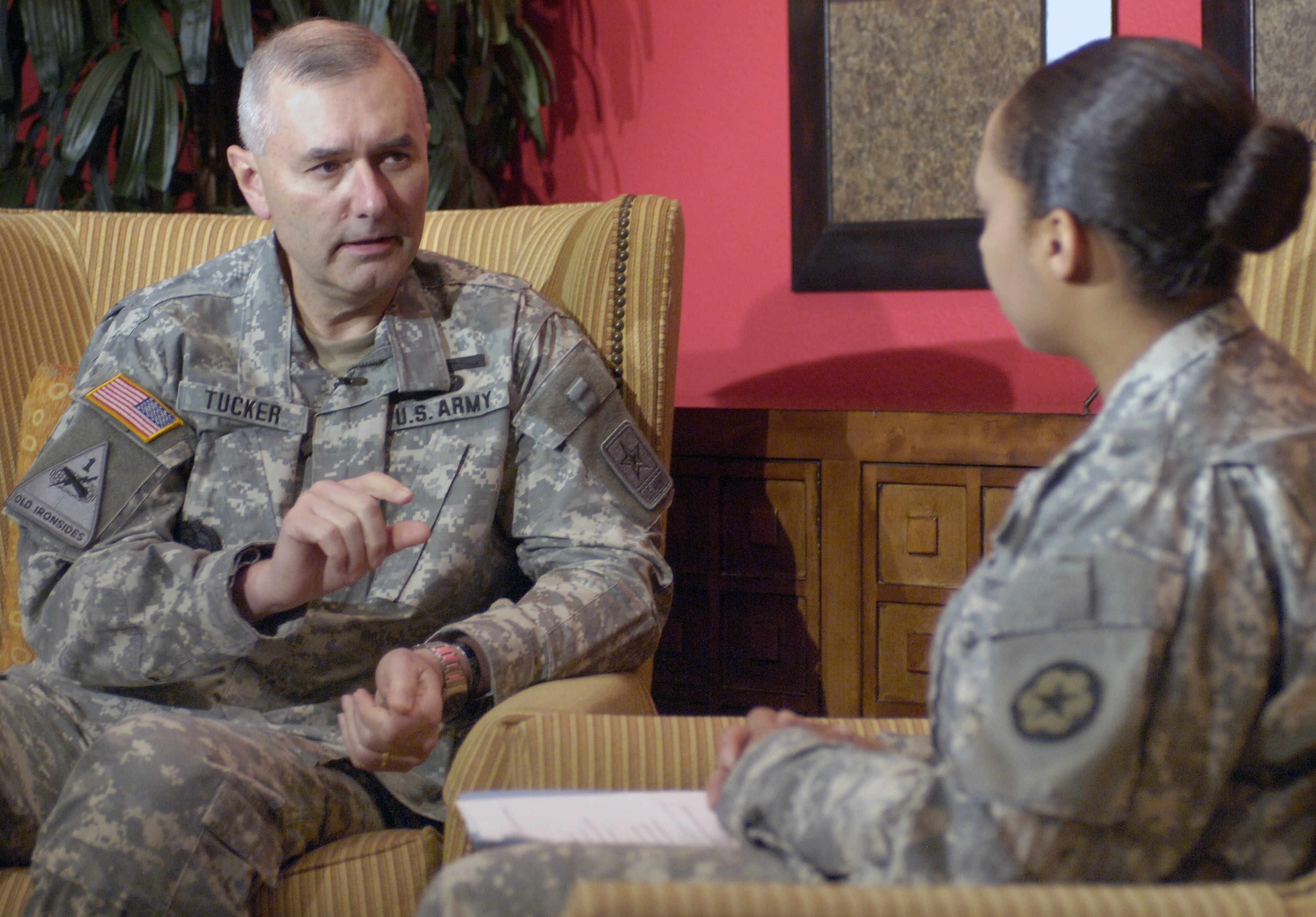SAN ANTONIO, Texas (Army News Service, Jan. 22, 2008) - Getting Soldiers healed from physical, psychological or emotional wounds is an Army mission of highest priority, second only to combat, a senior official said during the Warrior Transition Leadership and Training Conference Jan.13-18.
With the creation of 35 Warrior Transition Units worldwide since mid-2007, more than 8,900 Soldiers, or warriors in transition, are currently assigned and have but one primary responsibility - to heal.
"There has to be a place for these Soldiers to convalesce and heal, and possibly one day return to duty," said Brig. Gen. Michael S. Tucker, assistant surgeon general for warrior care and transition. He also heads up the Army Medical Action Plan, which called for establishing the WTUs.
<b>AMAP: Triad of Care</b>
The WTUs offer extensive help to wounded, ill or injured Soldiers who will take six months or longer to heal. The program includes assistance to their families. The WTUs replaced units such as medical hold companies or rear detachments that previously functioned as temporary holding units for Soldiers needing to convalesce.
"Even if the war stopped tomorrow, we'll still have a need to provide these warriors the care they need," said 1st Sgt. Mick Tener, Bravo Company, Warrior Transition Battalion, Fort Riley, Kan.
Leaders of the Army Medical Action Plan said warriors in transition receive medical care and leadership support from a team of specialists personally assigned to each Soldier. The team consists of a physician, nurse case manager, and military squad leader who are all dedicated and are known as a "triad of care."
<b>Beyond Healing</b>
"It's more than just healing the physical wound itself. It's the healing of the body, mind and sprit - the holistic approach to care," Tucker said.
Beyond healing, WTUs also provide a myriad of administrative and family support services such as help with pay problems, housing, transportation, education opportunities and training, recreation and fitness. Collectively, the team helps to facilitate all care, support and service the Soldier needs for a successful transition back to military duty, or into the Department of Veterans Affairs health and benefits systems.
<b>Dedicated Leadership</b>
Staff Sgt. Michael Thornton is assigned to the Warrior Transition Battalion at Fort Sam Houston, Texas. While serving with the 4th Infantry Division near Baghdad, he sustained burns over 33 percent of his body in September, 2006, when the vehicle he was traveling in was hit by a roadside bomb. He was transferred to the Medical Hold Company here to convalesce. Later in 2007, the company he was assigned to became a WTU.
"Things flow more efficiently now. It seems more organized. It's good to have dedicated leadership who handle just our issues," said Thornton. "In the past, some wounded Soldiers were also serving as squad leaders at the Medical Hold Company. They had appointments too, so it's better to have dedicated leadership.
"This is the best place I've seen in the Army. We've got great docs and so many people who care about us. I've seen issues like a pay problem I had that was resolved with their help the same day. They go out of their way to take care of you and they're good at it," said Thornton.
<b>Red Tape Cut</b>
"The 'suck it up and drive on' days are done," said Capt. David Payne, commander for the WTU at Fort Lee, Va.
"We're really blowing through the red tape and getting the warrior the care they need," said 1st Sgt. J.D. Callahan, Alpha Company, Warrior Transition Battalion, Fort Gordon, Ga.
"The squad leaders take a daily look at their warriors in transition. If a warrior is consistently making it to all appointments and suddenly misses a few in a row, we know it's an indicator to look deeper into what's going on with this warrior," said Maj. Juan Rosas, executive officer, Warrior Transition Battalion here.
Lt. Col. George Bryan commands the Warrior Transition Battalion at Fort Benning, Ga., with 240 warriors in transition assigned. He said the Army is not abandoning its wounded Soldiers, adding that Active, Guard and Reserve Soldiers are all finding help at the WTUs.
<b>Different Type of Unit</b>
The WTUs are unlike most Army companies in that they have no motor pool, supply or arms rooms. These units allow for wounded Soldiers to focus on healing and reconnecting with their families, said Payne. "It takes time," he said.
Nine community-based heath care organizations have also been established primarily for reserve-component Soldier care, for those who are from areas geographically away from Army posts.
"The Global War on Terror is producing causalities, as we're all certainly aware of. We have an unprecedented survivability rate of 92 percent, compared to 20 percent during World War II," Tucker said, adding that nearly all medically non-deployable Soldiers could be considered for assignment to a WTU.
For warrior care information, call the Army Wounded Soldiers and Family Hotline anytime at: 1-800-984-8523. Information is also available on the Web at: <a href="http://www.armymedicine.army.mil/amap/amap.html"target=blank>www. armymedicine.army.mil</a>.
(Michael Tolzmann is a writer and editor for the Army and Air Force Hometown News Service located in San Antonio, Texas)


Social Sharing